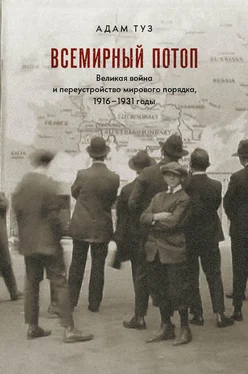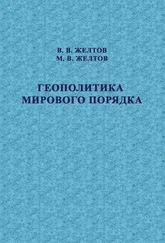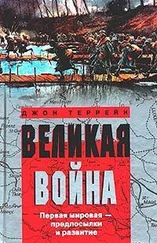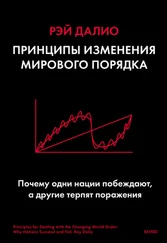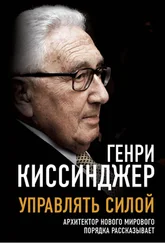J. C. Prude, «William Gibbs McAdoo and the Democratic National Convention of 1924», The Journal of Southern History 38 (1972), p. 621–628.
F. E. Schortemeier, Rededicating America: Life and Recent Speeches of Warren G. Harding (Indianapolis, IN, 1920), p. 223.
Higham, Strangers, p. 309.
R. Boyce, The Great Interwar Crisis and the Collapse of Globalization (Basingstoke,2003), p. 88.
Leffler, Elusive Quest, p. 44.
Boyce, Great Interwar Crisis, p. 178.
S. M. Deutsch, Counter-Revolution in Argentina, 1900–1932: The Argentine Patriotic League (Lincoln, NB, 1986).
R. Gerwarth and J. Horne (eds), War in Peace: Paramilitary Violence in Europe after the Great War (Oxford, 2012).
C. S. Maier, Recasting Bourgeois Europe: Stabilization in France, Germany, and Italy in the Decade after World War I (Princeton, NJ, 1975), p. 136.
E. L. Dulles, The French Franc, 1914–1928: The Facts and their Interpretations (New York, 1929), p. 120–121.
M. Metzler, Lever of Empire: The International Gold Standard and the Crisis of Liberalism in Prewar Japan (Berkeley, CA, 2005), p. 118–133.
L. Humphreys, The Way of the Heavenly Sword: The Japanese Army in the 1920s (Stanford, CA, 1995), p. 44; P. Duus (ed.), The Cambridge History of Japan, vol. 6, The Twentieth Century (Cambridge, 1988), p. 277.
R. Haig, The Public Finances of Post-War France (New York, 1929), p. 70–88.
B. Martin, France and the Aprиs Guerre, 1918–1924: Illusions and Disillusionment (Baton Rouge, FL, 1999), p. 35–36.
F. R. Dickinson, War and National Reinvention: Japan in the Great War, 1914–1919 (Cambridge, MA, 1999), p. 230.
P. Duus, Party Rivalry and Political Change in Taisho Japan (Cambridge, MA, 1968), p. 141.
M. Lewis, Rioters and Citizens: Mass Protest in Imperial Japan (Berkeley, CA, 1990), p. 82.
C. Wrigley, Lloyd George and the Challenge of Labour: The Post- War Coalition, 1918–1922 (Hemel Hempstead, 1990), p. 81.
M. Daunton, Just Taxes: The Politics of Taxation in Britain, 1914–1979 (Cambridge, 2002),p. 76–77.
Metzler, Lever of Empire, p. 133.
G. Balachandran, John Bullion’s Empire: Britain’s Gold Problem and India Between the Wars (London, 1996), p. 96.
A. C. Pigou, Aspects of British Economic History, 1918–1925 (London, 1945), p. 149.
Balachandran, John Bullion’s Empire, 93, p. 109–112.
K. Jeffery (ed.), The Military Correspondence of Field Marshal Sir Henry Wilson, 1918–1922 (London 1854 p. 253.
A. Clayton, The British Empire as a Superpower, 1919-39 (Basingstoke, 1986), p. 103.
R. Middleton, Government versus the Market: The Growth of the Public Sector, Economic Management, and British Economic Performance, 1890–1979 (Cheltenham, р. m 311–335.
M. Leffler, The Elusive Quest: America’s Pursuit of European Stability and French Security 1919–1933 (Chapel Hill, NC, 1979) p. 14.
M. Milbank Farrar, Principled Pragmatist: The Political Career of Alexandre Millerand (New York, 1991).
D. Artaud, «La question des dettes interalliées», in M. Petricioli and M. Guderzo (eds), Une occasion manquée? 1922: La reconstruction de l’Europe (New York, 1995), p. 89.
Dulles, French Franc, p. 130.
F. H. Adler, Italian Industrialists from Liberalism to Fascism (Cambridge, 1995), p. 165.
Metzler, Lever of Empire, 134; Duus, Cambridge History, p. 461; Lewis, Rioters, p. 246.
C.-L. Holtfrerich, The German Inflation, 1914–1923 (Berlin, 1986).
M. Flandreau (ed.), Money Doctors: The Experience of International Financial Advising, 1850–2000 (London, 2003).
Duus, Party Rivalry, p. 111.
Metzler, Lever of Empire, p. 129, 160.
Humphreys, Heavenly Sword, p. 61.
I. Gow, Military Intervention in Prewar Japanese Politics: Admiral Kato-Kanji and the «Washington System» (London, 2004), p. 85.
F. R. Dickinson, World War I and the Triumph of a New Japan, 1919–1930 (Cambridge,2013) p. 115–116.
M. Beloff, Imperial Sunset, vol. 2, Dream of Commonwealth, 1921–1942 (Basingstoke, 1989), p. 27.
K. Jeffery, The British Army and the Crisis of Empire (Manchester, 1984), p. 13–23.
K. Jeffery, The Military Correspondence of Field Marshal Sir Henry Wilson, 1918–1922 (London, 1985), p. 197–201.
K. Jeffery, «„An English Barrack in the Oriental Seas“? India in the Aftermath of the First World War», Modern Asian Studies 15 (1981), p. 369–386.
Clayton, The British Empire as a Superpower, 1919–1939, p. 20.
S. Roskill, Naval Policy Between the Wars (New York, 1968), vol. 1, p. 215–216.
J. Ferris, The Evolution of British Strategic Policy, 1919-26 (Basingstoke, 1989), p. 54–63.
Maier, Recasting, p. 195.
D. P. Silverman, Reconstructing Europe after the Great War (Cambridge, MA, 1982), p. 215–220.
Ibid., p. 149.
R. Self, Britain, America and the War Debt Controversy: The Economic Diplomacy of an Unspecial Relationship, 1917–1941 (London, 2006), p. 29.
National archive, CAB24/116 CP 2214.
G. Unger, Aristide Briand: Le ferme conciliateur (Paris, 2005).
Maier, Recasting, p. 241–249.
G. D. Feldman, The Great Disorder: Politics, Economics, and Society in the German Inflation, 1914–1924 (Oxford, 1993), p. 338–341.
Это противоречие фактам рассматривается в: N. Ferguson, Paper and Iron: Hamburg Business and German Politics in the Era of Inflation, 1897–1927 (Cambridge, 1995).
S. B. Webb, Hyperinflation and Stabilization in Weimar Germany (Oxford, 1988).
N. Ferguson, «Constraints and Room for Manoeuvre in the German Inflation notes to pp. 361-70 of the Early 1920s», The Economic History Review New Series 49 (1996), p. 635–666.
Silverman, Reconstructing Europe, p. 224–225.
Читать дальше
Конец ознакомительного отрывка
Купить книгу
